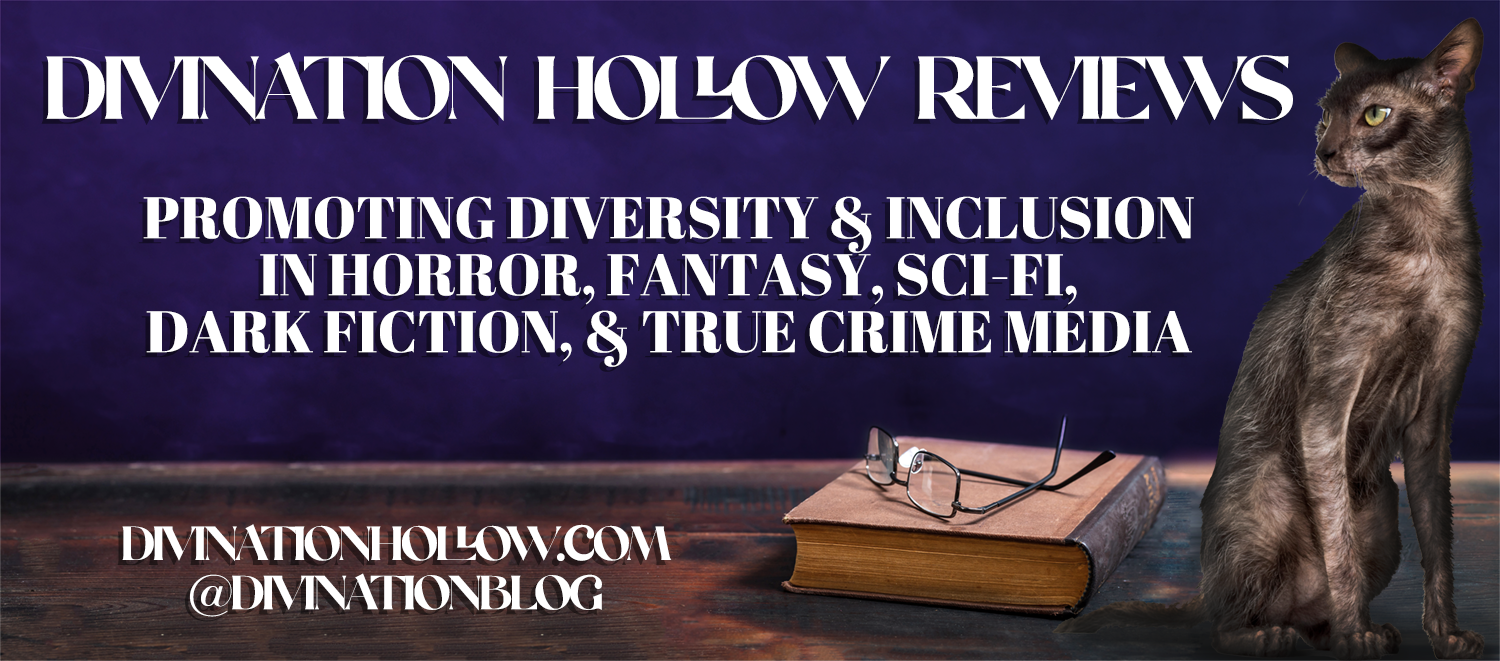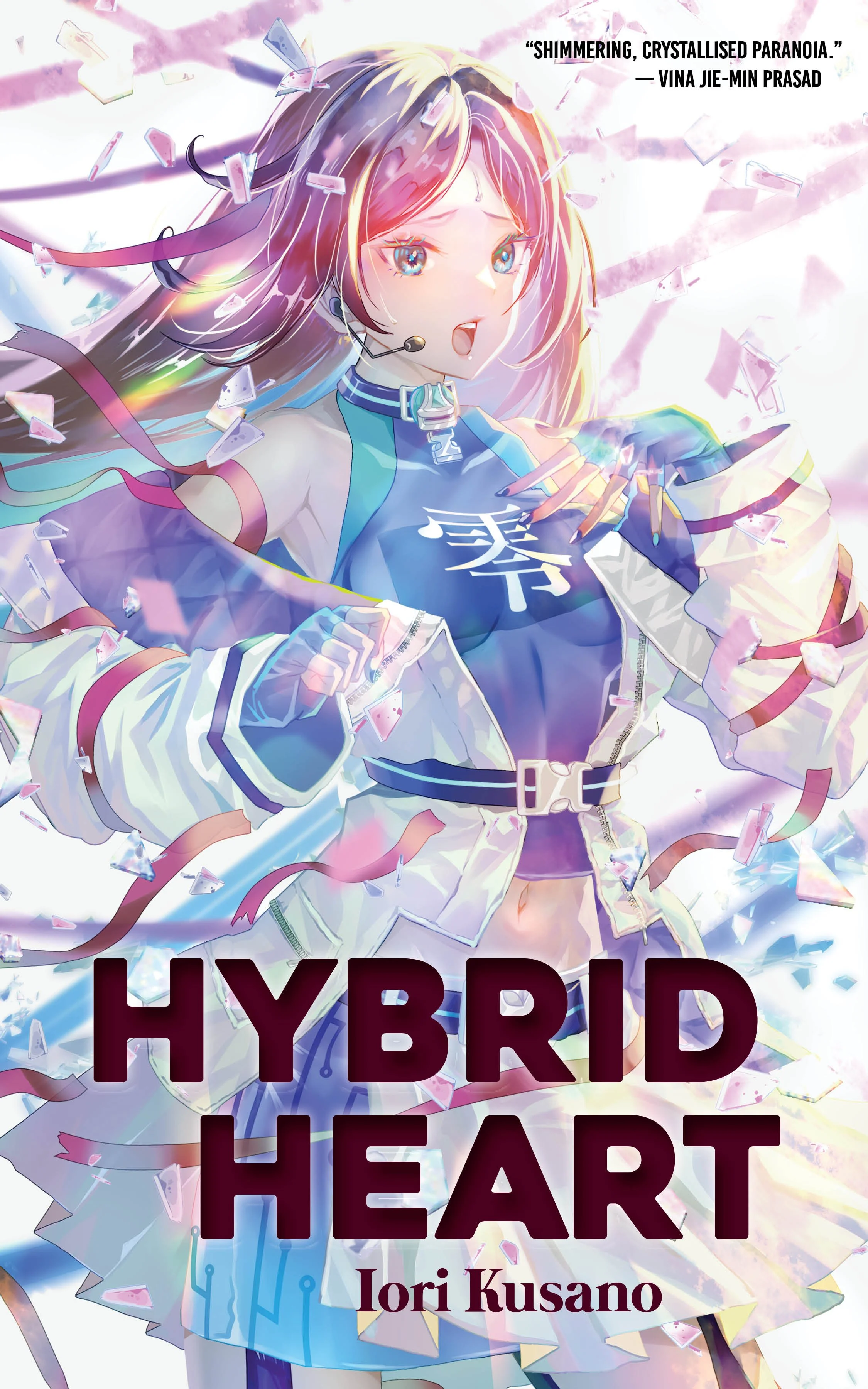Book Review: Hybrid Heart by Iori Kusano
Hybrid Heart is a novella dealing with J-Idol culture taken to its logical extreme. Our main character, Rei, is a working idol who has recently split from her working partner and best friend, Ririko. Throughout the book she deals with the guilt of carrying on without her, the pressure from her manager, the competition and companionship of other idols, and the threat of being made obsolete by new virtual idols online.
I’ll admit to having very little knowledge of the Japanese idol scene; I have some awareness of the Korean idol industry due to some groups’ recent mainstream success in the West, but I am unsure where the differences and similarities lie. I did, however, note many parallels with celebrity culture here in the UK. Rei has some deeply toxic fans that have formed a parasocial relationship with her, strangers tear apart her body, voice, and character at every opportunity. Her diet, exercise, and sleep are monitored by a chip in her head, and the results are viewable by her abusive and emotionally fragile manager, Kosaka.
Despite all of this, Rei is a refreshingly ordinary woman. She and Ririko were just two girls with a dream; together they sang the song “Hybrid Heart” that grants the novella its title. Now that Ririko is gone and Rei is forbidden from seeking her out, she struggles without a meaningful connection to another person. As already mentioned, Kosaka, her manager, is volatile and is in complete control of her life, and when a new, younger idol, Aimi, joins the agency also under Kosaka, Rei finds herself struggling with conflicting feelings about her.
Hybrid Heart is an interesting speculative work about idol and celebrity culture, and worth reading just for that, however it must be said that it is very light on plot. Much of the book revolves around Rei’s internal world, outside of that not much actually happens. If you approach this as a sci-fi fan seeking sci-fi action you are going to be disappointed. Not to mention Rei’s thoughts and emotional struggle starts to feel repetitive towards the end.
I came away with a sense of missed opportunity but I would still recommend this book, with the caveat that it is a quiet exploration of its themes and not to expect more than that.
Review by Dai Baddley




